Roots: The Next Generations - Season 1
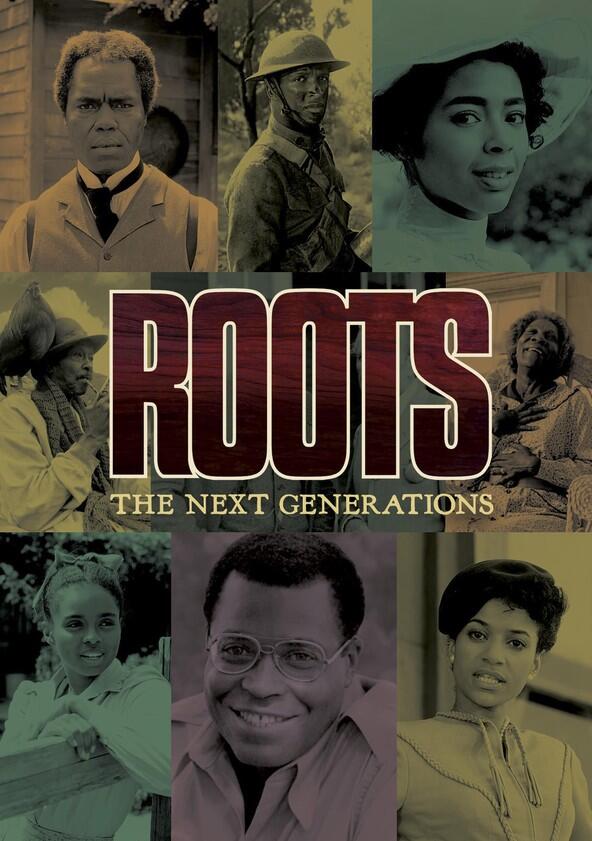
Season 1

Episodes

Part 1
It has now been 12 years since Chicken George and his family left their plantation in Virginia and arrived in Henning, Tennessee. The year is 1882 and the era of Reconstruction of the south and substantial progress for the newly-freed slaves, is coming to an end with the implementation of Jim Crow laws throughout the state. George's son Tom Harvey has been asked to travel to Memphis to meet with members of the Colored Republican Party Club, a group of local black politicians who are trying to come up with a new election strategy in light of the changing times. Meanwhile Tom's oldest daughter takes a liking for and wants to marry a young mulatto man, much to Tom's disapproval. The white son of a local attorney and adviser to the railroad eschews his father's profession in favor of poetry and falls in love with a local college-educated black school teacher brought to the town by Tom to open a colored school. However when they marry, he is expelled from his family and their presence in town raises the ire of the townspeople.
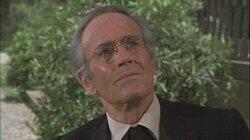
Part 2
Thirteen years have passed in the town of Henning, Tennessee and now in 1896, the town has taken advantage of a burgeoning new industrial age thanks to the expansion of the railroad. Returning home from Kansas City after a decade away teaching, Elizabeth Harvey reunites with her younger sister Cynthia, now grown up, and reconciles with her father. Cynthia has taken an interest in a local railroad gang worker named Will Palmer who returns her affections. But in order to court her properly and gain the approval of her father Tom, Will leaves the railroad and finds a better job at a lumber mill, eventually taking Cynthia to be his wife. His hard work, dedication, loyalty, and financial acumen leads to his surprise promotion to owner and operator of the mill, although it is now saddled with debt. Despite this, he and Cynthia give Tom and Irene their first grandchild. Meanwhile Colonel Warner's son Andy decides to get involved in politics by running against his father to institute a new Democratic Party that plans to disenfranchise blacks of the vote and ensure victory against the Republicans. And now thanks to new restrictive voting laws in the state of Tennessee, Tom is denied the opportunity to vote for the first time since the end of the Civil War.
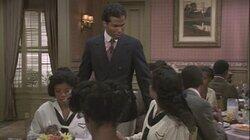
Part 3
The year is 1914 and Will and Cynthia Palmer's daughter Bertha heads off to college, eventually meeting and falling in love with a poor but hard-working fellow student named Simon Haley. Meanwhile Jim and Carrie Warner's son has become a doctor but because he is black, he is prevented from treating his own dying white grandfather, Colonel Warner. Bertha returns home from college for break to find the Ku Klux Klan has come to town and Simon returns to his home in Georgia to learn that his share-cropping family can't afford his tuition anymore and his father is ready to put him back to work in the fields. Simon manages to find work as a Pullman porter on the railroads to earn money during the summer, but also attracts a benefactor - a kind journalist who he served on a train route. In 1918, rather than attend graduation, Simon enlists in the army and heads off for war, heeding the words of Dr. W.E.B. Dubois, but leaving behind a stunned and grief-stricken Bertha.

Part 4
In a flashback of a military gallows in 1917 Texas, a group of black soldiers from the 24th Infantry, convicted for various crimes including mutiny, are hung. Fast forward to 1918 and the local church in Henning, Tennessee hears about the military's atrocities in a sermon, which frightens Bertha into imagining the same may happen to Simon. Meanwhile, Simon's 92nd Infantry are going through basic training but face many injustices at the hands of the locals in the Illinois town where their camp is located. Simon and his all-black company finally head overseas and fight valiantly in France under the command of a white Lieutenant. After a gas attack, the unit is taken to a hospital and then sent home after a brief period of R&R in France. However the now battle-hardened men face an escalation of racism, harassment, and violence, while the Spanish Flu rages throughout the country. Despite this, Simon and Bertha have a happy reunion and eventually marry, with intentions to move to Ithaca, New York so Simon can get his Masters at Cornell. They eventually return home from New York with a baby who they name Alex.
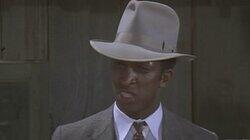
Part 5
Eleven years after the Haley's return home with baby Alex, the story opens in 1932 in Henning, Tennessee during the Great Depression, with Simon still unable to find a job as a professor. In the interim, the family continues to live with Bertha's parents and Simon works for his father-in-law hauling lumber. Simon finally receives and accepts a job offer as Director of Agriculture at A&M Institute in Normal, Alabama, and moves his family there. He meets and eventually works with a white Federal County Extension agent while visiting black farmers in the area. Simon shadows the agent, offering growing advice in an attempt to alter the old destructive farming practices, and notifying the farmers of new farm subsidies recently set up by President Roosevelt. However both men face resistance from the county's largest landowner, who not only refuses the advice, but wants to keep the subsidies for himself. When both men push too far, Simon's house is trashed and the agent is assaulted as a warning. Meanwhile, Bertha slowly takes ill, trying to hide it, but eventually succumbing.
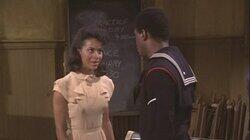
Part 6
Seven years have passed since Alex's mother's death and the Haley family has moved to Elizabeth City, North Carolina where Simon is teaching agriculture at the local state teacher's college after remarrying. Alex has decided to drop out of college and return home, immediately finding a job with the WPA for $1 a day. Simon, realizing that Alex was apparently too young when he was sent off to college, recommends that Alex enlist in the military. Alex decides to join the Coast Guard in Norfolk, Virginia, but sadly discovers that his only opportunity there is working in the ship's galley. Alex eventually meets a young lady at a weekly church social and after war is declared, marries her before he is sent off to the south pacific. While at sea, he learns that he is the father of a baby girl and otherwise finds popularity and solace when writing. When the war is over, he returns home and re-enlists despite his father's disapproval, taking an assignment at a Coast Guard station in New York City. However he finds that racism is alive and well in his day to day life and his struggle to become a professional writer eventually alienates his wife.

Part 7
In the exciting conclusion, it is now 1960 in Henning, Tennessee, 10 years after Alex's wife Nan left him, and Alex attends the funeral for his great Aunt Elizabeth. He has finally succeeded in a writing career by publishing free-lance articles including interviews with Minister Malcolm X of the Nation of Islam and George Lincoln Rockwell, head of the American Nazi Party. Alex lands a contract to ghost-write the autobiography of Malcolm X, although Malcolm is assassinated before the book is published. Alex then realizes that he should write a book about his own family and he obsessively researches his origins, alienating his new girlfriend in the process. After identifying the language of the words passed down to him, he manages to get an advance that will allow him to travel to Gambia, West Africa. Once there, he is taken by boat to the Griot for the Kinte clan. After the Griot retells centuries of history, Alex finally hears the name of Kunta Kinte and the story of the drum that lead to his capture into slavery, marking the end of his search for his family's roots.
Recently Updated Shows

48 Hours
48 Hours is a CBS news magazine that investigates intriguing crime and justice cases that touch on all aspects of the human experience. Over its long run, the show has helped exonerate wrongly convicted people, driven the reopening -- and resolution -- of cold cases, and changed numerous lives. CBS News correspondents offer an in-depth look into each story, with the emphasis on solving the mystery at its heart. The program and its team have earned critical acclaim, including 20 Emmys and three Peabody Awards.

Invasion
Earth is visited by an alien species that threatens humanity's existence. Events unfold in real time through the eyes of five ordinary people across the globe as they struggle to make sense of the chaos unraveling around them.

Wednesday
Smart, sarcastic and a little dead inside, Wednesday Addams investigates a murder spree while making new friends — and foes — at Nevermore Academy.

Alien: Earth
When the mysterious deep space research vessel USCSS Maginot crash-lands on Earth, Wendy and a ragtag group of tactical soldiers make a fateful discovery that puts them face-to-face with the planet's greatest threat.

Peacemaker
This James Gunn-created series continues the saga of Peacemaker, a vainglorious superhero/supervillain who believes in peace at any cost — no matter how many people he has to kill. After a miraculous recovery from his duel with Bloodsport, Peacemaker soon discovers that his freedom comes at a price.